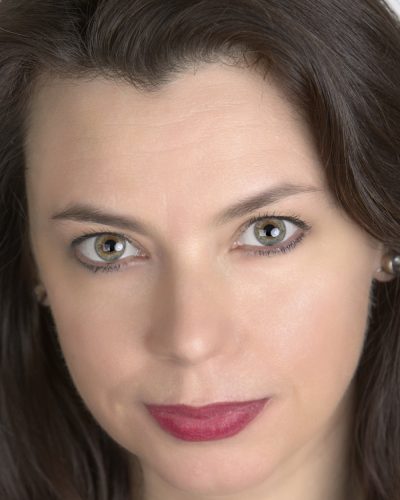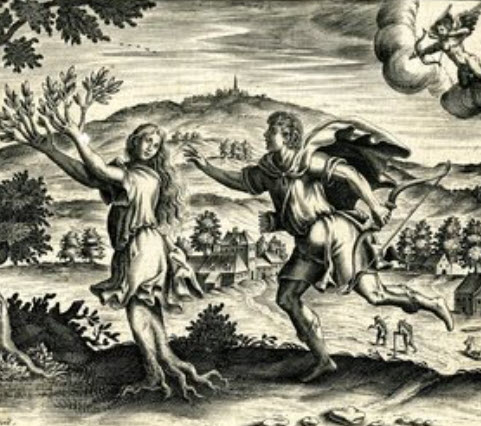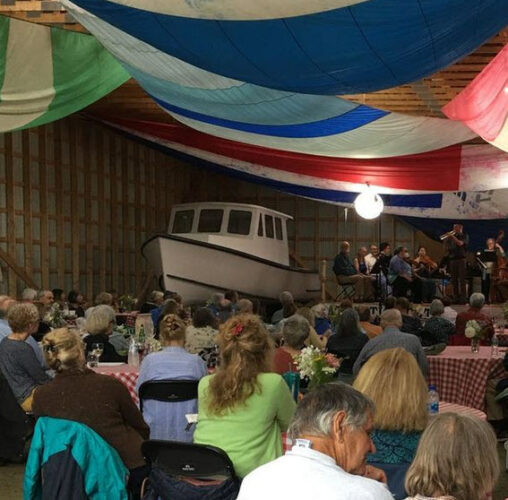by Nell Snaidas
Published January 1, 2019
From the January 2019 issue of EMAg
“Everyone must come out of his Exile in his own way.” — Martin Buber
It is impossible not to notice the feeling of despair hanging over us like a dark cloud. Life in the arts is never easy, of course, but lately I’ve seen and heard so many of my fellow musicians crying out for help, not just financially but existentially. And it is easy to feel that what we do makes no difference or isn’t necessary, especially if it doesn’t directly seem to create change.
But it is extremely important that each of us try to do our part to help heal the world. I would argue that taking refuge in our music making is not at odds with striving to make our planet a better place. There is power in creating an exile for ourselves and others, not only from the desert of our current political climate, but also from the gloom that can inhabit our beings.
Often, when I’m feeling particularly stressed, I find myself dreaming of fantasy concerts. I let my mind wander to repertoire, instrumentation, friends, and artists I admire, combinations of voices I’d love to hear together. I think of venues (including living rooms), real and imagined. Lately, this exercise in daydreaming has become very specific. I’ve been imagining early-music pick-up concerts and salons as a means of getting together not only to enjoy wonderful music making, but also to fashion a homey space to create and enjoy each other and find a way to recharge.
Consider a kind of Schubertiade, but instead of fortepiano or Romantic guitar you might have a harpsichord or a lute, maybe even some violins, a bowed bass, and of course a singer or five. A program of rare German Baroque Lieder by Heinrich Albert, Johann Nauwach (both students of Schütz), Andreas Hammerschmidt, Adam Krieger, Georg Neumark, and others would be a great vehicle for an intimate salon with varying musical forces.
Lovers of Romantic Lieder who have yet to discover the repertoire of the German Generalbass or continuo Lied of the 17th and 18th centuries will be in for a treat. The writing includes solo songs and pieces that involve more voices, basso continuo, and the occasionally obbligato instrument. It ranges in style from simple, strophic dance tunes to more ornate art songs, and the poetry is set with exquisite care. The immediacy and intimacy of the text settings and instrumentation are reminiscent of Monteverdi’s canzonette from Scherzi musicali while also evoking Schubert.
One of the most prolific and important composers of the genre is the aforementioned Albert (1604-51), who created a collection of 170 songs (for one to five voices) in eight volumes called Arien oder Melodien (which can be found on IMSLP). He set to music his own poetry and poems of friends, providing in each volume detailed instructions for performance practice (including advice that the continuo should not be played “like hacking a cabbage”).
But it is another detail about Albert’s life that further inspires my fantasy of establishing these kinds of gatherings. Albert was an avid gardener and member of the Königsberg Poetic Society with Simon Dach, Martin Opitz, and others. According to Herbert Meinhard Mühlpfordt, “The poets would convene at the Kürbishütte, an arbor in Albert’s garden…Albert grew pumpkins and gourds, and the friends would carve their bucolic noms de plume into the gourds.”
I like to think of all of us early-music lovers as members of our own poetic society. When we come together and play music from the past, we join our spirits in exploration and discovery. Our minds and bodies are energized. We activate parts of the brain and heart that resound with joy. Perhaps we could program “Albertiades” with and for each other and create our own musical garden, where we restore ourselves through the music we love, ready to face—and heal —the world anew.

Nell Snaidas is a soprano who lives in Manhattan. She is the co-artistic director of GEMAS:Early Music of the Americas, a collaboration of Gotham Early Music Scene (GEMS) and Americas Society (AS). The concert series’ mission is to present the finest early music repertoire and artists of the Americas.




